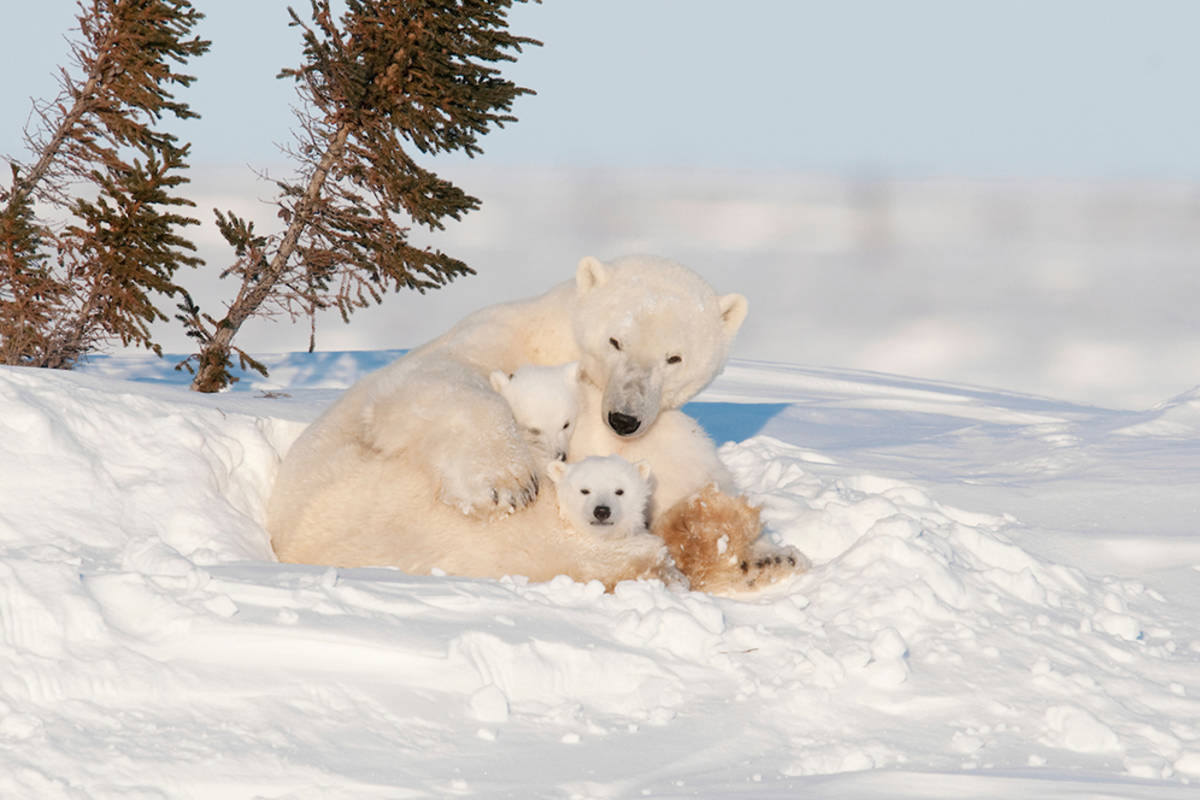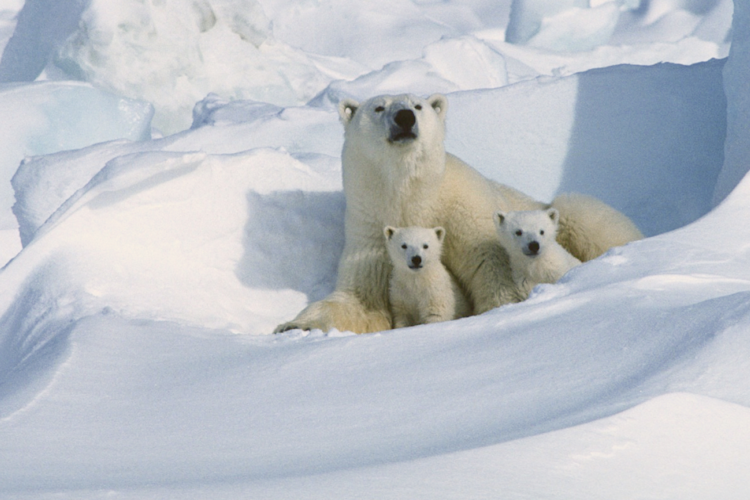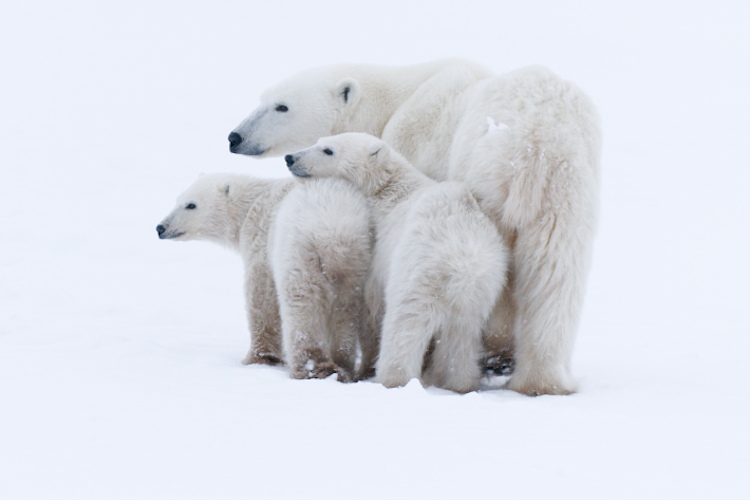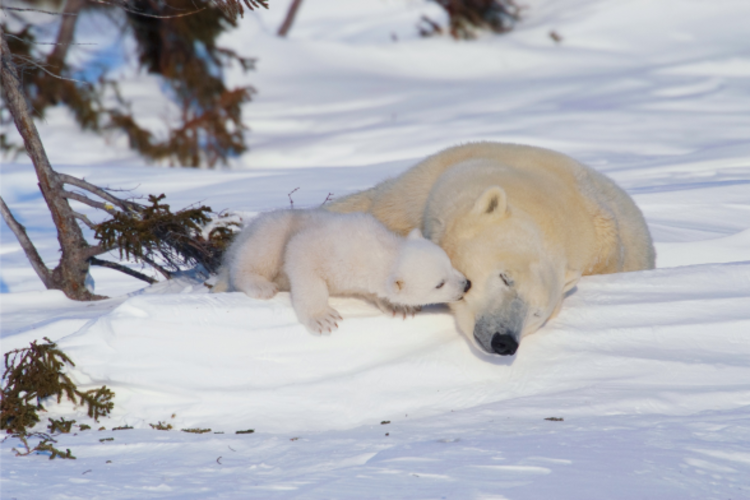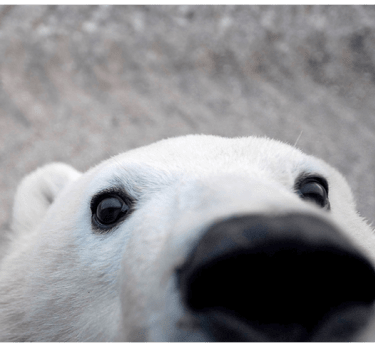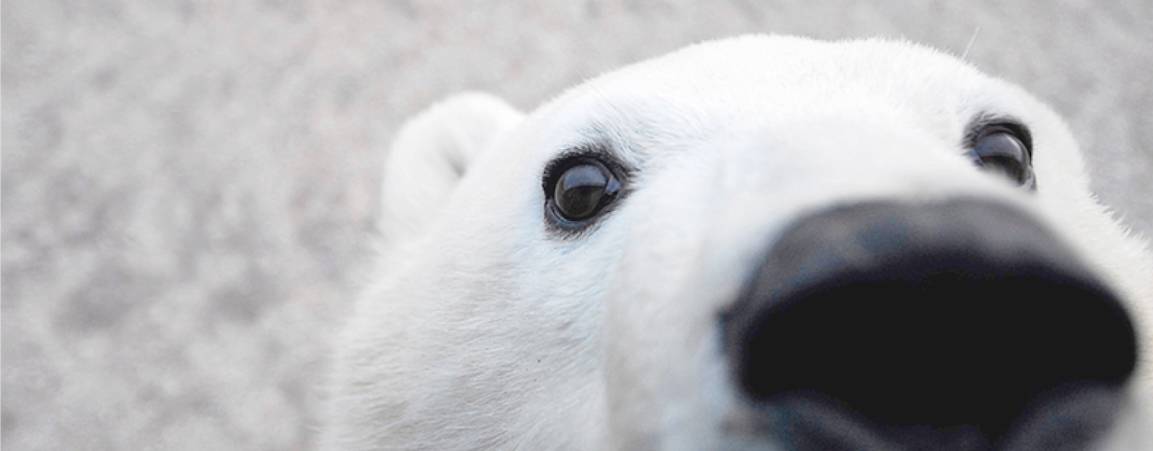The Path Forward
Across the Arctic right now, polar bear moms and newborn cubs are nestled together in snow dens, their fragile future at risk without our help.
Last year, Hudson Bay polar bears were off their sea ice hunting grounds for about 170 days due to a delayed freeze-up. According to scientists, that is over 50 days beyond the point at which cub survival rapidly declines. While we are likely to see variation in the duration of ice-free periods in years to come, this extreme punctuates a troubling trend for these polar bear families and the survival of the species.
Fall 2021’s late freeze up on Hudson Bay underscores the urgent need for our leaders to buckle down and vigorously build climate policies and programs that will protect polar bears … and all of us. At this critical point for the planet, described by the U.N. secretary-general as “code red for humanity,” it’s up to us to harness our collective power to protect and elevate what matters to us—vibrant communities, clean air, safe homes, healthy wildlife and ecosystems. Together, our actions can create the hope we seek and need.
At Polar Bears International, our path forward this year is two-fold:
